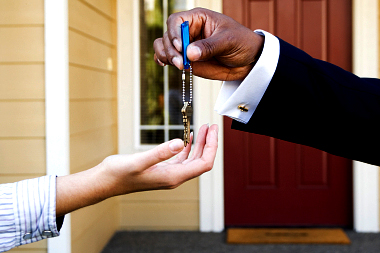Do You Know Your Basic Rights as a Tenant? You Should. People usually take advantage and misuse people who show signs of ignorance. Knowing your rights give you an upper hand as you will be addressed with respect and from a point of information. Furthermore, having the right kind of information instills confidence in you in tackling a myriad of issues. You will also be able to articulately advocate for your interests.
Knowledge of these rights will help you negotiate your way out of tricky situations. For this reason, it is important for both landlords and tenants to know them. If the tenant cites a problem, the reason is that there is something wrong with the property. As a result, the landlord ought to rectify the problem as soon as he can.
Many people don’t know this but your rights as a tenant start from the minute you start looking for your house, put down your deposit, move in and finally when you move out.
Below are the rights that you should be aware of and that you should never compromise on. I have broken them into 3 sections.

Tenant Rights When Searching For A House
Now that you understand that your rights begin at this stage, also note that you have the right to live in any place that you want without being discriminated against. Discrimination can come in form of gender, age, religion, nationality, race, color, marital status, physical and mental capability. Please note that if you are looking for accommodation in a place that allows only a particular gender, e.g hostels, your rights are significantly reduced. During this stage, a landlord can do a background check on you. This is not illegal.

Tenant Rights When You Move In
This is a bit familiar to a lot of Kenyans. If you don’t familiarize yourself with your rights at this stage you might find yourself having constant disagreements with your landlord. This is especially o when you raise an issue with the property you are renting. For this reason, make sure you properly read and understand your tenancy agreement before you sign.
Right to Live in a Habitable House
You have the right to live in a habitable space and that is comfortable. Your landlord should, therefore, ensure that the property he/ she is renting out is in good condition. This will make it easier for you to live there. He should make sure that the water supply, electricals, and lighting are all in good shape. If they are not, arrangements must be made to fix them as soon as possible.
Right to Maintenance
In case you have anything that is broken, make arrangements with the landlord to have it repaired. This is his responsibility. Also, avoid making huge repairs. This is because the money will be deducted from your deposit. Furthermore, the landlord might not want any changes done to his property. If it is a small repair though you can fix it yourself.
Right to Privacy
After moving in, the landlord does not have permission to enter your house without your consent. Yes, they need to have permission from you no matter what they are trying to do. The only exception is when there is an emergency such as a fire or flooding.
Right to Safety
The landlord should make sure the apartment they are renting out is safe and secure. This entails ensuring that the doors, windows, and locks work properly to ensure your safety. You can also add extra locks to further tighten your security.

Tenant Rights When You Move Out
Right to Your Deposit
You have the right to get your deposit back at the time you are moving out. However, the time it will take to return it to you depends on what it states on your tenancy agreement. Make sure you get a full explanation of why you didn’t get your full deposit back, in case he does not return the complete amount.
Right to Know Why You’re Evicted
In the event that your landlord sends you an eviction notice, you have the right to inquire the reason behind it. Ensure you follow up especially if the reason stated is not indicated in your lease agreement. The law states that he ought to inform you first, before serving you with the notice.
Right To End Your Lease Agreement
You have the right to move out if you no longer want to continue residing in your house. You however have to serve notice to the landlord.
Lastly, knowing your rights will help you solve issues you might experience in your house. This will also make you live comfortably. Tenancy agreements vary. For this reason, before signing, make sure you take some time to read and understand it.














